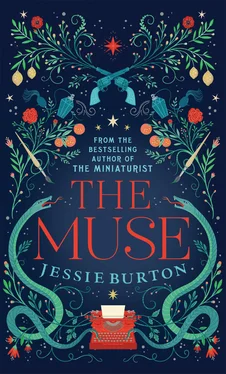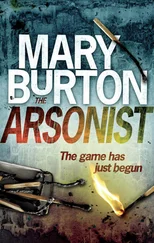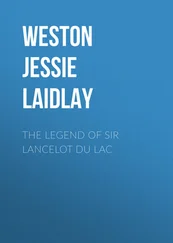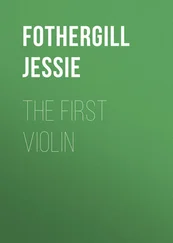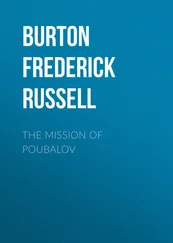Isaac had talked on occasion about art, about famous painters and what made someone stand out from the rest. Novelty , he always said, makes the difference . It was the fact that they were unlike the rest. You can be a brilliant draughtsman , he said, but that means nothing if you’re not seeing the world differently . Teresa felt almost a wave of pain run through her. This wasn’t just a case of novelty. This was something else, beyond words, an elusive power that was too much for her to comprehend. She didn’t know if she believed in God, but she knew this girl was blessed.
‘You don’t like it,’ said Olive, her mouth thinning to a line. ‘I knew I should have worked more on those fruit trees. And perhaps there should be figures in it—’
‘I like it,’ said Teresa. They stood in silence before it. ‘Is — this what you do, señorita?’
Olive considered the question, laying the painting on the bed as delicately as one might a lover. ‘I got into art school,’ she said. ‘I sent my pictures and I got a place.’
Teresa’s eyes widened. ‘But you are here?’
‘Yes. I’m here.’
‘But you have un gran talento .’
‘I don’t know about that.’
‘If I had the money I would buy your painting.’
‘Would you?’
‘I would be proud to have your painting on my wall. Why are you not at the school?’
Olive looked away. ‘I don’t know. But it’s funny. Just before we left for Spain, I purchased this green, a vivid grasshopper green — and a shade of scarlet, an oil called Night Indigo, a plum and a silvery grey — all colours I’d never used before. I just picked them up and put them on the counter. And it was as if I’d known that only here would those paints come into their own, and help me. That they would flesh out my fears and dreams.’
Teresa could not hide her confusion. ‘Look, Teresa, it’s not easy to explain. My parents, the girls in London. . Something’s clicked down here. It was as if this painting had been stalking my mind and now it’s in the light. I’ve never felt so connected to the doing of the thing.’
‘I see.’
‘But now that it’s done and. . and out of me, I can’t help wondering that the paints didn’t do it on their own. As if my involvement was nothing at all.’
‘No, no. You have done it. If I touch the paints, nothing good will happen. But with you, it is different.’
Olive smiled. ‘Thank you for being so nice about it.’
‘Do you have more paintings?’
‘Not here, but I do have these.’ Olive went over to one of her trunks and pulled out a large sketchbook, handing it to Teresa.
Teresa opened the pages and saw inside small sketches of hands and feet, eyes and bottles, cats, trees, flowers — completely unlike the painting in their realist, engraved style. Over the next page, she saw a portrait of Sarah, called Mother, London , and one of Sarah and Harold together, a still-life sketch in pastel of the lemons Teresa had brought that first day.
She pointed at the lemons. ‘I asked you where they went. You said you didn’t know.’
Olive blushed. ‘Sorry.’
‘You stole them?’
‘If you want to put it like that.’
‘Why is this a secret?’
‘It’s not a secret . I just — don’t tell anyone. Except you.’
Teresa glowed, hiding her pleasure in the pages of the sketchbook. The images were extraordinary, as if they might leap off the page. She kept turning, and was arrested by a double page of her brother; Isaac Chopping Wood, Isaac with Coffee Cup .
Teresa felt a surge of pain and Olive yanked the book from her grip. ‘Just sketches,’ she said. Downstairs, Sarah’s laugh rang out, a little bell.
‘What will you do with this painting?’ Teresa asked.
‘So practical,’ said Olive. ‘Not everything has to have a purpose, you know, an end point.’
Teresa flushed, because this was exactly how she thought; pragmatically, like a jackal hunting for a rib. Still, she had detected a defensiveness in Olive’s responses which mystified her. If she had half of Olive’s skill, she’d be in Barcelona by now, far from Arazuelo. ‘You are going to hide it under your bed for ever, where no one will see it?’ she said.
‘Of course I’m not.’
‘So why do you not show it now? You could put it on the wall.’
Olive went rigid, sitting down on the bed next to The Orchard . The old mattress gave way beneath her, and Teresa thought suddenly how squalid the bed looked, and how stupid Olive was to put up with such a state of being when she could clearly afford something better. They could even go into Calle Larios in Malaga to buy a new one — she could offer to take Olive, letting her try mattress after mattress until they found the perfect one. But Teresa kept silent, the deft pencil edges of her brother’s face reworking themselves in her mind’s eye.
‘I don’t want it on my wall,’ said Olive.
Teresa frowned. It seemed a flat protest. She came up to the edge of the bed, her hands on her hips. ‘You could sell this in Malaga, señorita,’ she said. ‘You could make money.’
Olive flicked her eyes up. ‘Money? We’ve got money coming out of our ears.’
Teresa flushed. ‘You could go away.’
‘But I like it here.’
‘Paris. London. New York—’
‘Tere. I don’t want people to know. Do you understand?’
‘If that was mine, I would show the world.’
Olive looked over at the painting. ‘Say you do show the world. But the world might not like it. Think of that. All those hours, all those days and months — years, even—’
‘But I would like it, so it would not be important.’
‘So why bother trying to please the world in the first place? And, I can assure you, you will never truly like it, if you do it yourself.’
‘Then why are you doing it?’
Olive got up, lit a cigarette and stared out of the window. ‘I don’t know . I’ve never known. I just do it.’ She looked over at Teresa. ‘All right, I know that’s vague. It’s just — it feels as if there’s a place, a shining citadel of perfection I have in my mind. And with each canvas and sketchbook, I’m inching closer and closer to it, to the place where my paintings will be a better reflection of the person I am, a different reflection. And I will fly.’
She rubbed her forehead and came back to lie on the bed. ‘Why are we so trapped by the hours, the minutes of every day? Why can’t we live the life that’s always out of reach?’
Her voice broke, and Teresa reached out a hand to Olive’s arm. ‘I’m sorry, Tere,’ Olive said. ‘I’m probably mad. But it’s how it’s always been. I just wanted to show someone. I’m glad you liked it.’
‘I love it. Me ha encantado .’
‘Here.’ Olive was brisk again, leaping off the mattress with her cigarette still in her hand. ‘Take these. You might like to look at them.’ She reached down for a book on Renaissance painters, and an old Vogue , and handed them over. ‘The magazine is my mother’s, but she won’t mind.’
Teresa flicked through the Renaissance book, colour plates of men and women in their finery, their skin taut as boiled eggs, bulging eyes, delicate ringed fingers and swathes of damask on their shoulders. Strangely elongated Virgin Marys, darted with a yellow beam of the Annunciation; nightmarish scenes of mythical beasts; men with five legs; women turning into pomegranates. She read the names silently: Bellini, Bosch, Cranach . It was another language to learn and assimilate, to wield like a weapon.
The Vogue was well out of date, but Teresa didn’t care. It was hers. She was glad it was already a year old. Sarah barely glanced at her magazines before dumping them on the floor of her bedroom, their colours and allure a siren that Teresa was astonished her mistress couldn’t hear. But she didn’t want Olive getting into trouble.
Читать дальше
